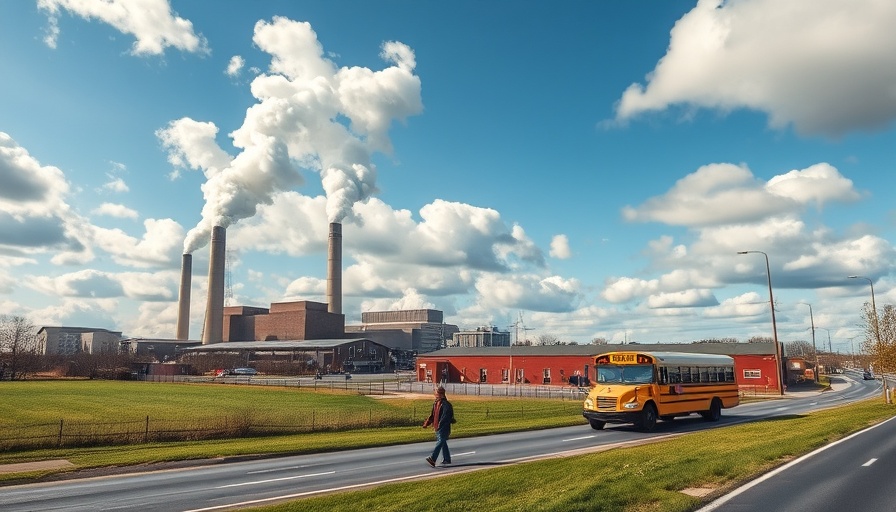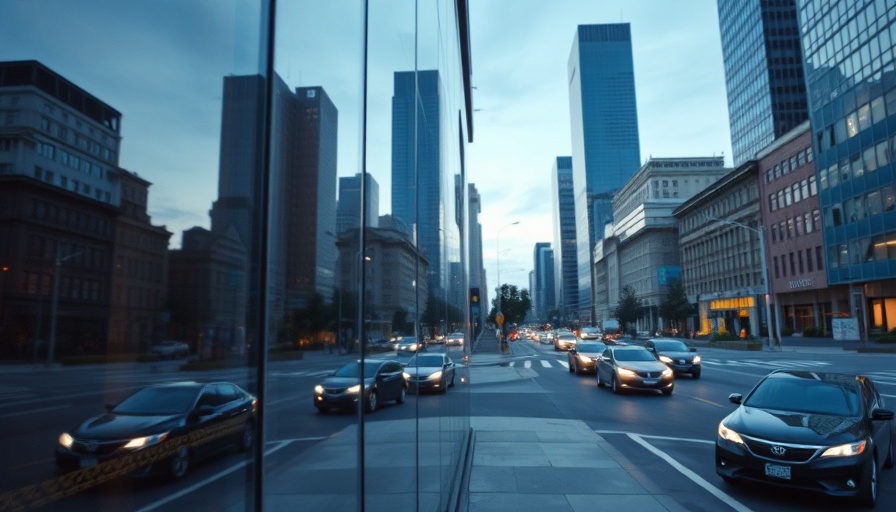
Trump EPA's Deregulation: A Stark Change in Environmental Policy
The United States Environmental Protection Agency (EPA) recently unveiled a controversial plan that threatens to roll back crucial pollution rules targeting power plants. This action could significantly increase greenhouse gas emissions and allow for the release of harmful toxic chemicals such as mercury into the environment.
The Repeal That Could Affect Lives
On June 12, 2025, the EPA announced its intention to repeal landmark pollution regulations designed to curb greenhouse gases from power plants. Environmental advocates are alarmed, particularly since these regulations are projected to prevent around 30,000 premature deaths each year and save taxpayers about $275 billion in health-related costs. According to Senator Sheldon Whitehouse from Rhode Island, these changes represent a significant step back for public health and ecological safety.
Implications for Vulnerable Communities
The EPA's drastic actions may disproportionately affect low-income communities and populations of color, who often bear the burden of industrial pollution. Reports indicate that informal studies have shown these areas already face higher rates of health issues stemming from pollutant exposure. “Ignoring the immense harm to public health is a clear violation of the law,” stated Manish Bapna, the CEO of the Natural Resources Defense Council.
Industry Perspectives: Balancing Economics and Health
In defending the changes, EPA Administrator Lee Zeldin articulated that repealing these rules would 'unleash' American energy by reducing costs for companies. While the economic implications are notable, critics argue such a stance prioritizes industry profits over public health interests. Experts warn that the increased emissions from a relaxed regulatory environment could exacerbate climate change, leading to more severe weather events such as hurricanes, floods, and wildfires.
Future Predictions: Climate Awareness and Eco-Friendly Practices
This latest regulatory rollback comes amidst a broader backdrop of climate inaction and growing environmental crises. Boutique hospitality professionals must keenly observe these developments as they can impact community sustainability and eco-conscious operational practices. Small-scale hotel owners and eco-lodge operators might feel the repercussions of increased pollution in nearby regions, which could deter visitors seeking clean environments.
Taking Action: Moving Towards Sustainable Hospitality
As an integral part of the hospitality industry, professionals have a unique opportunity to promote climate awareness and combat the effects of deregulation. Implementing sustainable practices, such as engaging in 'chaos gardening' or sourcing local, organic goods, can not only attract eco-minded guests but also contribute positively to the environment. By advocating for cleaner, healthier practices in their operations, these professionals can lead by example.
Conclusion: The Road Ahead in Sustainable Hospitality
In light of these shifting policies, boutique hospitality leaders must rethink their approach to environmental stewardship. Engaging with local communities to support restoration of nature reserves, fostering awareness about pollution, and utilizing alternatives to single-use plastics can set a new standard in the industry. As public concern about health and the environment grows, the demand for eco-friendly options will only increase, presenting both challenges and opportunities for those in the hospitality sector.
 Add Row
Add Row  Add
Add 




Write A Comment